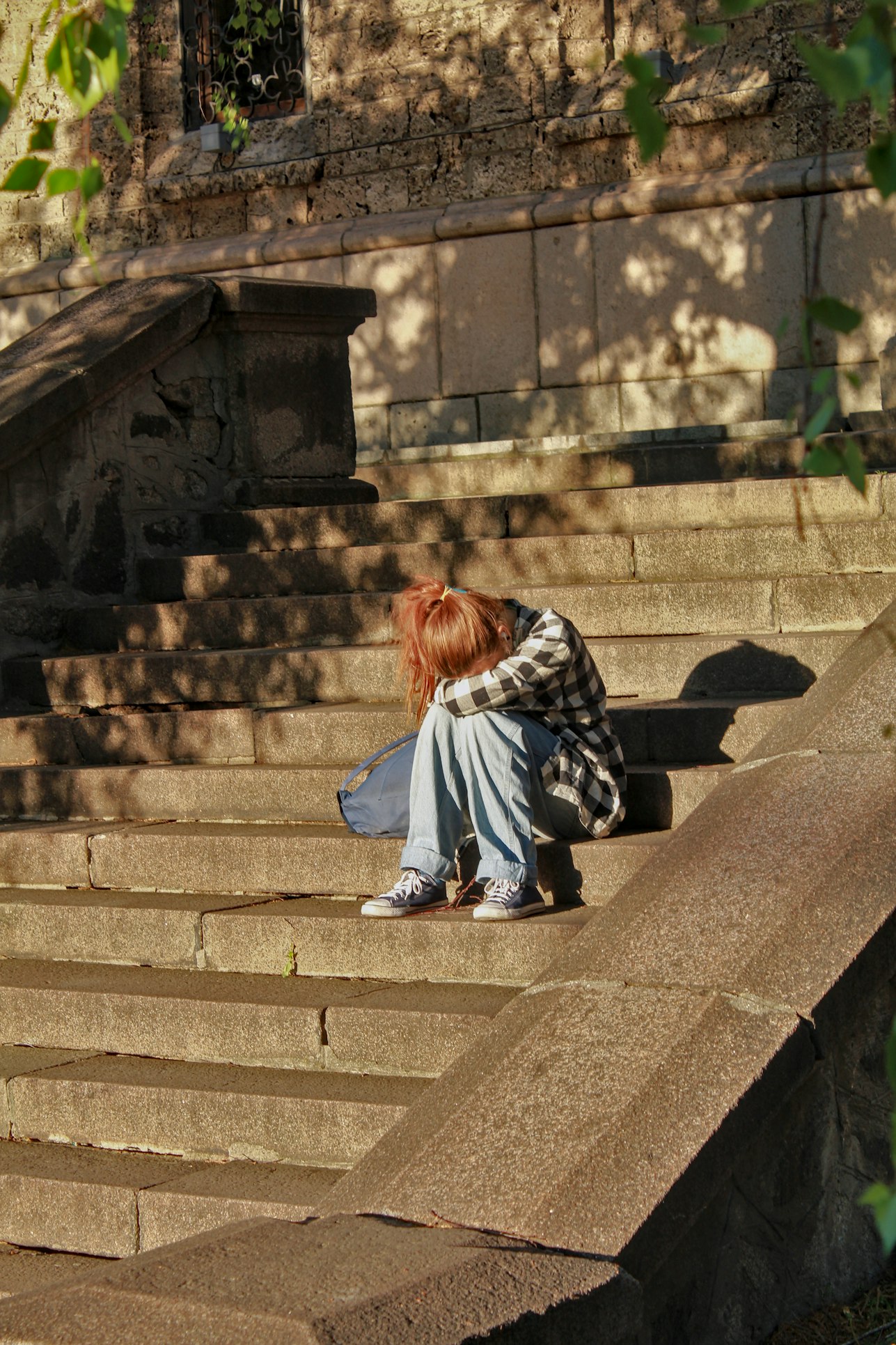
We have all experienced anxiety in one way or another. In fact, it’s commonplace enough that even children can experience it when going to school, playing a sport for the first time, or just speaking aloud in class. Adults especially feel it for numerous reasons. Does anxiety go away?
It’s a normal sensation to feel, but there is a chance that it can completely interfere with your life. Some of us experience consistent anxiety over seemingly nothing, and when this happens, all we can think about is does anxiety go away and when will you start to feel better.
The thing is: there’s no permanent cure. There’s a chance it gets better, but there’s also a chance it gets worse. So, it’s important to look into your situation to figure out if it’s just mild anxiety or an anxiety disorder to learn how to make anxiety go away long enough to lead a healthier life.
Overview
Educating yourself about anxiety and anxiety disorders is a good way to get a better grasp of your situation. It’s also a good step toward healing, but before we do, let’s check out some common questions and answers that may help you along the way.
How long does anxiety take to go away?
There is no singular answer for this question as it depends. For some people, the anxiety symptoms can last a few minutes to a few hours. For others, this may last for days on end or months.
Treatment and management skills play a good role in how long symptoms can last over any given episode.
Can anxiety disorder be cured permanently?
Anxiety disorder cannot be cured. What you can do is manage and cope with the symptoms so that the intensity of your anxiety may improve over time.
Some people can see stretches of relief, but it can always come back up, especially if you’re exposed to high-stress situations.
Is anxiety a lifelong thing?
The answer to this depends on the individual. For some people, anxiety is something that only comes up occasionally as a natural response to an event. People with an anxiety disorder, however, can experience random bouts at any given time.
In that case, the anxiety is something they will have to live with. There are ways to cope and better manage symptoms with the right treatment plan in place.
Can you overcome anxiety?
Whether or not you overcome anxiety is based on numerous factors, but it starts with seeking help. This is true no matter what type of help you get such as therapy, medication, and even lifestyle changes. All of these things can help you conquer your anxiety so that you know how to better respond whenever an episode creeps up on you.
Anxiety and Anxiety Disorders

Before weighing the topic of how to make anxiety go away, it’s important to look deeper at anxiety and anxiety disorders.
First off, the two are separate while still staying connected.
Everyone experiences anxiety, but it only truly occurs when you’re about to face something. This includes a date, a test, or even some social anxiety when meeting new people or going to an event.
The feeling can be a good thing at times. It’s a way for our bodies to keep us alert of any impending danger so we’re ready to respond accordingly.
Even so, when that anxious feeling seemingly comes out of nowhere, it’s a good indicator you have an anxiety disorder instead.
People can have anxiety without having an anxiety disorder. When it’s like that, the topic of how long does anxiety last is an easier one to manage since the sensation can go away once the event in question is over.
Those with a disorder will have a more difficult time since the symptoms can overwhelm you to the point that it’s difficult to function.
If this is happening to you, it’s important to seek out help because a healthcare professional can properly evaluate you. This will help them determine if you have an anxiety disorder and what type of disorder you are suffering from.
Only then can you start to work on an effective treatment plan.
Types of Anxiety Disorders
Anxiety disorder is a rather broad term since there are several types of anxiety disorders to contend with.
Some of the more common types include the following: generalized anxiety disorder, panic disorder, agoraphobia, separation anxiety disorder, social anxiety disorder, and phobia, specific phobias.
Generalized Anxiety Disorder
In the case of generalized anxiety disorder, you may experience persistent worrying that can cut into your daily activities in life.
These are usual worries over common things like appointments, meetings, school or job responsibilities, and more. Rather than just basic anxiety, these symptoms can become emotional and physical to the point that they are making it difficult for you to go through your normal routine.
Panic Disorder
Panic disorder describes itself within its name: it’s recurrent panic attacks.
These attacks can come out of nowhere or be expected in the face of an upcoming major event, and when they strike, you may feel as though you’re experiencing a major medical emergency. This is because the physical symptoms often become so intense that some feel like they’re having a heart attack.
Agoraphobia
Agoraphobia is an anxiety disorder that deals with a fear of being in specific situations where escaping may be difficult when facing anxiety or panic-related symptoms.
This fear may be out of proportion. It can be based around several places or situations like using public transportation, walking in crowds, being in enclosed or open spaces, or just leaving home alone.
Separation Anxiety Disorder
Separation anxiety disorder is characterized by having an excessive fear of being separated from those you are attached to.
It is a common occurrence in children, but it is found in adults as well. In fact, it’s known for those that develop it in childhood can sometimes carry those symptoms into adulthood too.
Social Anxiety Disorder
Social anxiety disorder was also referred to as “social phobia“, and it deals with people having significant discomfort or fear in social situations.
This anxiety stems from fears of being embarrassed or otherwise rejected whether in front of new people or among people you already know like relatives and friends. It can get intense enough to make common activities like eating in public a strenuous and nerve-wracking task.
Phobia, Specific Phobias
Specific phobias deal with a range of things where people feel persistent fear of a situation or thing. This can become overwhelming and excessive to the point where people actively avoid it or panic if faced with it.
This can include many areas like a fear of heights, fear of public speaking, fear of cats, fear of poison, anxiety after eating, etc.
Symptoms of Anxiety
On the topic of how long does anxiety last, people often worry about the symptoms and how they can interfere with their daily lives.
One thing to know is that not everyone experiences the same symptoms. So, you may notice some things on our upcoming list that you have felt, while there may even be things not on the list that you go through.
In any case, recognizing symptoms can help you determine that you may need to seek help and treatment if you aren’t already. Knowing signs of anxiety is also a good step in figuring out does anxiety go away. You can keep a look out over when you experience the symptoms and how long it’s been since you last felt any.
For now, let’s start with the physical signs of anxiety:
- Excessive sweating
- Rapid heartbeat
- Shortness of breath
- Chest pain
- Stomachache or diarrhea
- Nausea or vomiting
- Feeling lightheaded or dizzy
- Trembling
- Muscle tension
- Dry mouth or difficulty swallowing
- Insomnia
Let’s also take a look at the emotional and behavioral signs of anxiety:
- Fatigue
- Restlessness
- Excessive worrying or fear
- Trouble concentrating
- Feeling of apprehension or dread
- Irritability or agitation
- Feeling tense or “on edge”
- Urge to avoid things that trigger your nerves
- Mind going “blank”
Risk Factors

It’s not always simple to find an exact cause to your anxiety. However, it does help to look at risk factors as well as your history to try and pinpoint how the anxiety came to be.
Understanding all this is yet another step in figuring out the notion of does anxiety go away.
Genetics
Many people find themselves predisposed to certain conditions depending on their family history, and this is true with anxiety.
It’s been researched that people who have a close relative with an anxiety disorder are more likely than not to develop one themselves. This includes having a parent or sibling with the disorder.
Childhood Experiences and Behavior
It’s not uncommon for our childhood experiences to shape our mental wellbeing as we grow up. This is especially true when it comes to trauma.
There’s a slew of traumatic events that can lead to the development of an anxiety disorder. This includes mental and/or physical abuse, the loss of a loved one, and abandonment.
Besides experiences, how we behave when we are children can be an indicator of future anxiety. For instance, perhaps you were extremely shy as a child. This can lead to you feeling wary about upcoming situations or around people.
Of course, this isn’t to say that awkwardness or shyness is automatically an indicator of a future anxiety disorder. It does just put you at a higher risk of developing more symptoms like avoidance tendencies.
Health
There is a chance that your mental or physical health can put you at a higher risk of developing an anxiety disorder.
Those with a chronic or terminal medical condition can easily experience larger bouts of anxiety over said condition. It’s also not unheard of for people who have depression to also have anxiety symptoms.
Another cause for concern is any substance use or abuse. From prescription medication to illegal drugs, there’s a chance that consuming or abusing them can lead to anxiety.
This is also true for simple consumption of caffeine. Some people can handle it better than others, while overconsumption can also cause anxiety symptoms.
Treatment and Management

Just because you have been diagnosed with an anxiety disorder, that doesn’t mean your outlook is bad. There are many ways to go in terms of treatment and management.
Let’s address the elephant in the room first: does anxiety go away?
Well, it all depends. If the situation or event that caused your anxiety is resolved, then there’s a good chance that the anxious feelings will go away on their own.
Of course, they can always come back, but you may be able to better deal with any symptoms.
However, chronic anxiety or anxiety disorders can feel as though they will never go away. Despite these feels, which can quickly worsen due to your anxiety, you can begin to feel better.
It may happen fast, or it may take some time. As long as you stick to some coping methods and perhaps even seek professional help, you can see yourself managing and controlling symptoms more frequently in the future.
Coping Methods
There are a number of ways you can manage your anxiety on your own.
For one thing, consider some lifestyle changes. Staying active can cause some positive effects in your life such as reduce stress. This can elevate your mood and help with some anxiety symptoms.
There are other stress management techniques such as practicing meditation or yoga.
You also should remember to develop better sleep habits so that you’re more refreshed throughout the day. And for those of you who use recreational drugs or consume alcohol, consider lowering your consumption or quitting altogether as these things can worsen anxiety symptoms.
Good coping methods also stem from education. Knowledge truly can be power, so the more you learn about your condition, the better able you get at learning how to manage your symptoms.
Making note of your triggers is another good way to learn how to stop or control your anxiety symptoms. This is easily done by journaling whether in writing or through your phone. Anything that allows you to keep track of how you feel and what brought the symptoms on is helpful.
Remember to also take time out for both self-care and socializing. Finding support from friends and family is a good way to stay on the path toward healing. If you wish, you can even find a support group filled with strangers that have experienced similar things as you.
Another good thing about therapy is that you can find it online from the comfort of your home. This is a major useful tool if you suffer from social anxiety as it keeps you in a safe space for you to freely share how you feel and keep your bearings in order.
Professional Treatment Options
If you feel as though your anxiety won’t go away no matter what you do, then you can always seek out professional help.
A common route to take is therapy. More specifically, psychotherapy.
Many people respond well to this kind of talk therapy. Cognitive behavior therapy (CBT) is a beneficial route to help you change your way of thinking as well as your reactions.
Learning about your behavior and finding ways to adjust is a good way to treat your anxiety symptoms. This is especially useful if you don’t fully understand your triggers just yet as therapy can steer you in the right direction.
Sometimes, you may be prescribed medication or encouraged to do a combination of therapy with medication.
Antidepressants are commonly prescribed, more so if you have also displayed depression symptoms alongside your anxiety ones.
Of course, a doctor may also prescribe you anti-anxiety medications to focus more on just the anxiety-related symptoms that have interfered with your life.
When it comes to treating the physical symptoms, it’s common for doctors to prescribe beta-blockers. This may happen when those physical symptoms become a major concern in your day-to-day life.
If you are prescribed medication, then it’s best to take it as directed. Many of these types of medication can lead to side effects that may worsen your condition in the long run, more so if they are abused.
So, be sure to follow your doctor’s orders if given any kind of medication. Also, always mention any side effects as you and your doctor can both come to terms if the side effects are worth going through if the medication is working otherwise.
Takeaway
Anxiety can be a debilitating condition to suffer from. When things get severe enough, we may only think one thing: does anxiety go away?
In the moment, it can feel like things will never get better. Or perhaps things do clear up for a while only to return later.
However, it’s important to not lose sight of things. Anxiety disorders may not be curable, but they are treatable. You can find ways to manage the condition and symptoms, and that begins with learning as much as you can.
It’s why we hope the information provided here gives you a clearer picture of the condition and assure you that you aren’t alone in your suffering.
There are many routes to travel down in your journey to seek out help. You can embrace those around you, seek out professional help, or do a combination. Whatever you choose, focus on what makes you feel the most at ease so that you can begin managing your anxiety symptoms the best way you can.
Sources
- Gottschalk, M. G., & Domschke, K. (2017). Genetics of generalized anxiety disorder and related traits. Dialogues in clinical neuroscience, 19(2), 159–168.
- Anxiety » what is anxiety? Signs, causes, symptoms. (2019, November 12). Anxiety.org. [online, retrieved March 9, 2022]
- Social anxiety disorder (social phobia) – Symptoms and causes. (2021, June 19). Mayo Clinic. [online, retrieved March 9, 2022]
- What is psychotherapy? (n.d.). Home │ psychiatry.org. [online, retrieved March 9, 2022]







